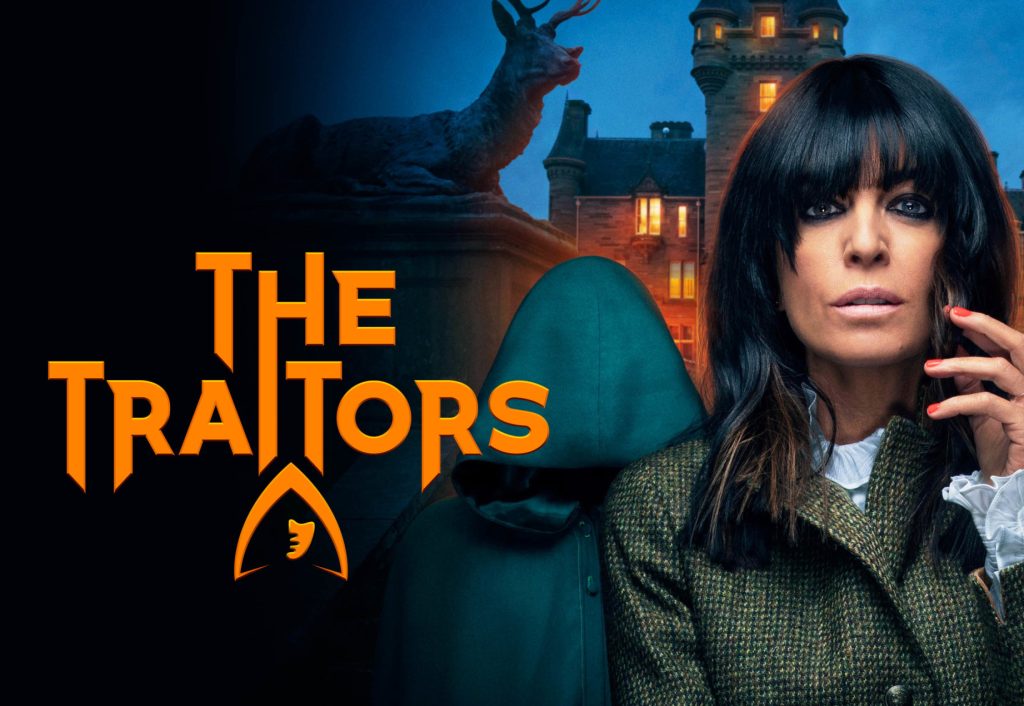Behavioural Psychology: How I’d Win The Traitors

“A game of trust and treachery”, The Traitors is a reality TV show involving deception, strategy and (dare I say) a touch of behavioural psychology. This blog will detail how I, a back-stabbing behaviouralist, would go about winning the show. For blog purposes only, I have cast myself as a Traitor.
Quick summary of the concept: a group of contestants are split into Traitors and Faithfuls. The Traitors must work together to eliminate the Faithfuls, while the Faithfuls must find and banish the Traitors. Each side is looking to bank some prize money.
The Traitors operates almost entirely in the socio-personal sphere; to win, you must tailor both your personal characteristics and your interactions with those around you. Let’s start with the personal…
Appearance is truly everything. The first thing I’d do, would be to get glasses. Why? In study after study, glasses denote intelligence and credibility. Glasses signify trustworthiness. Research into mock jury trials found that defendants who wore eyeglasses received fewer guilty verdicts than defendants who did not.
The other great thing about glasses? They give you an identifiable weakness. Yes, it’s important to appear intelligent, but not so perfect as to arouse suspicion.
Here I’d employ the pratfall effect, which is the phenomenon that people who are considered highly competent are often more likeable after making a mistake. A good example: when Tesla’s supposedly impenetrable Cybertruck had its windows shattered during a public presentation. Rather than doing red-level damage control, Tesla printed t-shirts featuring the broken glass; in short, they made a mistake and then they used that mistake to humanise the brand. You must strike a careful balance on The Traitors. If you balls things up too severely in a task, you’ll be at best a hindrance and at worst an obvious Traitor. Best to only be moderately foolish.
Finally, let’s talk about accent. If you’re watching the current series, you’ll know that Londoner Charlotte has been faking a Welsh accent “because my mum’s from Wales, it’s one of the most trustworthy accents”. This isn’t as absurd as it quite literally sounds. Articles and studies have linked Welsh, northern English, Scottish and Irish accents to high scores for attractiveness and trustworthiness. However, I strongly suggest that any accent fakery nods to your own heritage, or you’ll likely be removed by the BBC faster than you can say “shwmae”.

Moving swiftly on, let’s look at the interplay between the contestants… I stress that the primary goal here is to masquerade as a Faithful to avoid elimination from the game.
An obvious technique, employed by former winner Harry, is to make one key Faithful friend. In Harry’s case, he befriended a warm and unsuspecting disability model called Mollie and then crudely discarded her like spam. You might be familiar with the bystander effect, which describes how people are less likely to help a person in need when others are present; well, this is the opposite. Harry acted as an upstander. He spoke and acted in support of Mollie, even in tough situations. In group psychology, being an upstander not only increases your integrity and likeability but serves to improve your social standing in the group hierarchy. There’s no compelling research that covers later discarding your friend like a mouldy sandwich, but that’s beyond the scope of this blog.
Throwing others under a bus isn’t just a graphic turn of phrase, it’s also a highly useful strategy when trying to distance yourself from other Traitors. It’s well researched that hostile attitudes toward an out-group can enhance popularity and solidarity within one’s own group. I’d plan to curry favour with the Faithfuls by removing a fellow Traitor with a highly noticeable and selective assassination attempt. While this strategy won’t win me any friends at the internal board meeting, it will cement my status as a likely Faithful in the eyes of the majority.
Thirdly… fake news. Have you heard of it? Get to know it because this will be key to securing victory. Spreading malicious misinformation about other contestants is a sure-fire way to promote uncertainty and fear. Misinformation and disinformation can erode trust in the system; they can disrupt public discourse and deepen societal divides. Excellent. The key to effective misinformation is emotional resonance (“Gary has hurt us so deeply”), appealing to existing biases (“Gary was hiding in his room again earlier”) and novelty (“I saw Gary writing ‘world’s best Traitor’ in the snow”). The win comes at Gary’s expense, but at least he’s not a kind and naïve disability advocate.
The most important thing is to act with conviction. ‘America’s Greatest Traitor’ Benedict Arnold fought as an American officer in the Revolutionary War before defecting to the British. His undoing? A personal sense of regret that some say he expressed in later life. The core principle of Traitordom is that you must never apologise, never explain. Je ne regrette rien… or however you say that in Welsh.
